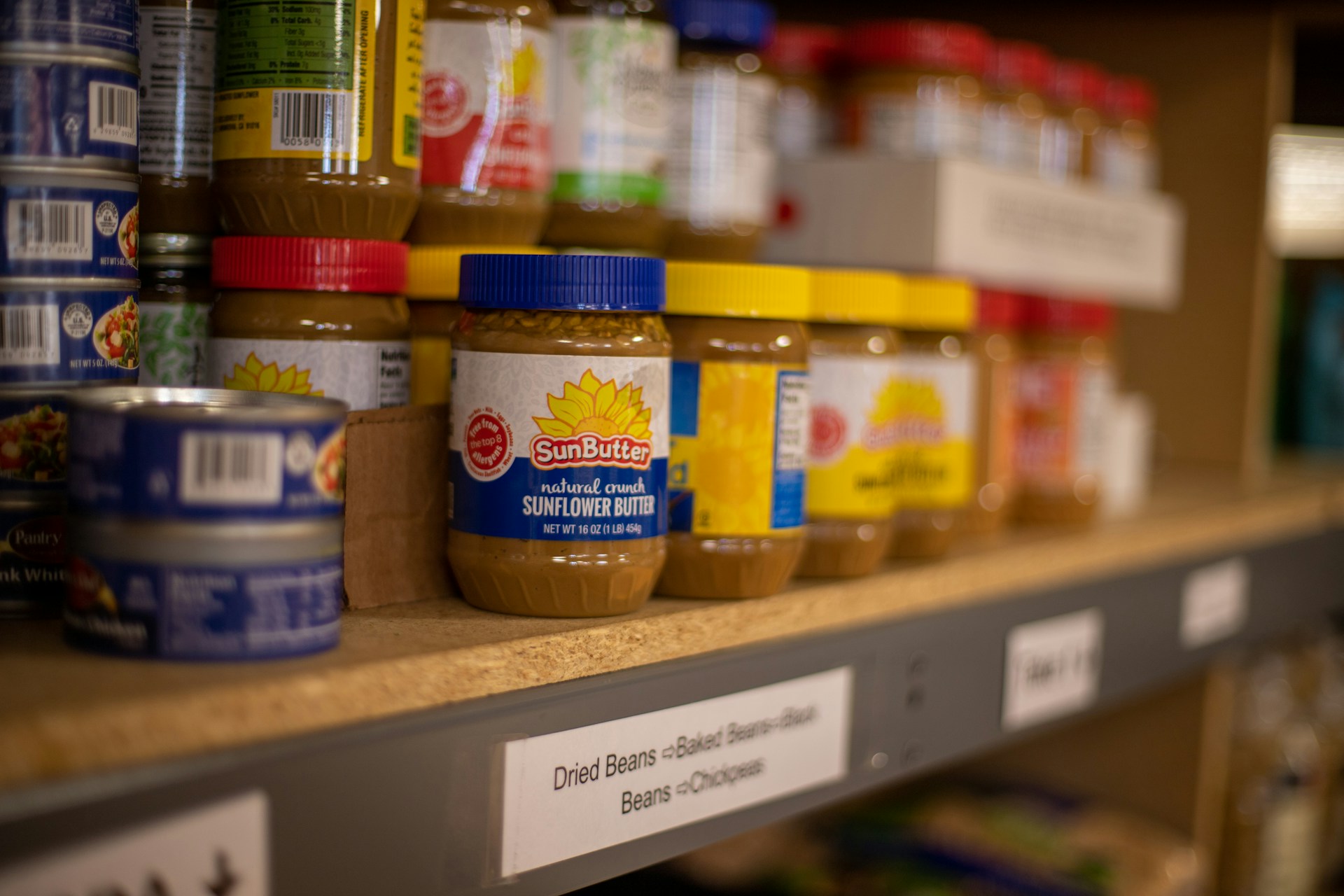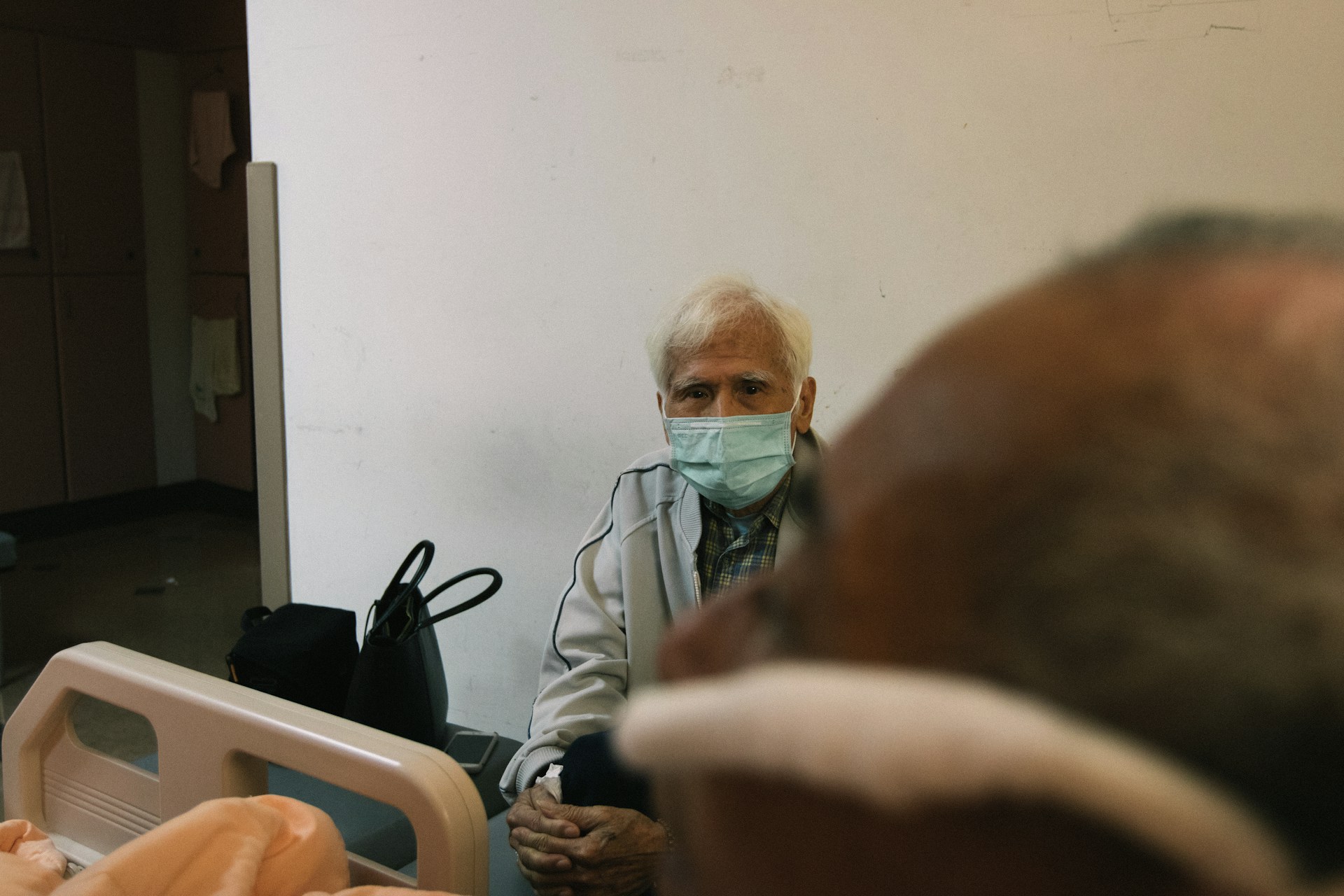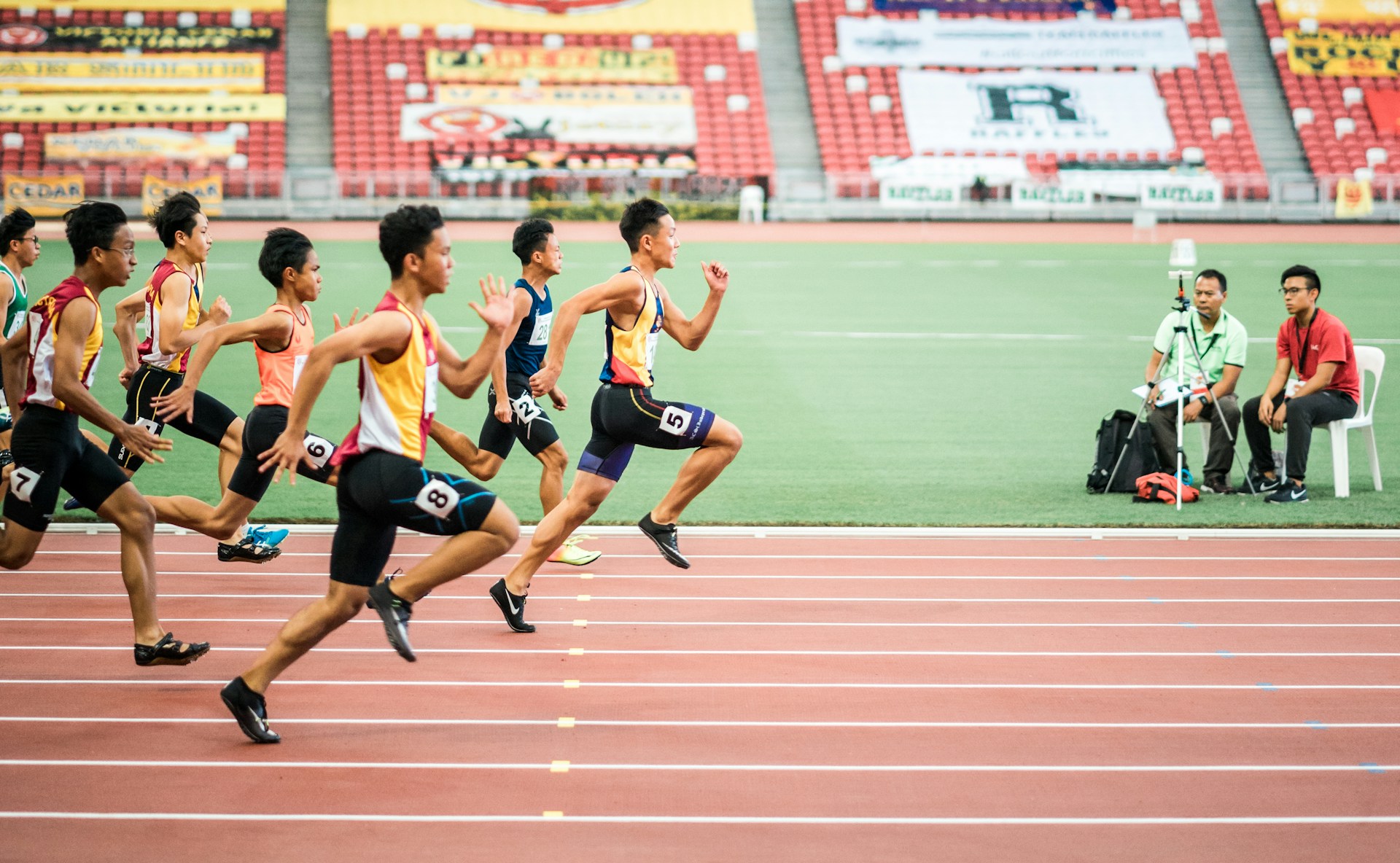Leveraging the Aspects of Knowledge, Attitude, and Practice as an Alternative to Prevent Detrimental Impacts of Stunting
Memanfaatkan Aspek Pengetahuan, Sikap, dan Praktik sebagai Alternatif untuk Mencegah Dampak Buruk Stunting

Downloads
Background: The prevalence of stunting in Indonesia is recorded at 21.6% among children under five, while the WHO target for 2025 is less than 14%. Prevention efforts are crucial for mitigating its detrimental impacts. One of the early prevention efforts is health education about nutrition through strengthening knowledge, attitudes, and practices related to healthy food consumption.
Objectives: This study aimed to measure the differences in the levels of knowledge, attitudes, and practices in school-age children following health education about nutrition.
Methods: This study used a pre-experimental method involving 40 students aged 13 to 15 years. All students received nutritional health education through drama performances and lectures about healthy food and practiced bringing healthy packed meals at certain times. Data were analyzed using the Wilcoxon test and Friedman test.
Results: Descriptive analysis showed an increase in the average values of knowledge, attitudes, and practices. The Wilcoxon test revealed a significant increase in knowledge (p-value=0.035) before and after the intervention. Meanwhile, the Friedman test revealed a significant increase in practices (p-value<0.001) before and after the intervention, with the practice of bringing and consuming healthy packed meals remaining consistent up to four weeks after the intervention.
Conclusions: Interventions using drama performances, lectures, and the provision of healthy packed meals significantly increased knowledge and practices among junior high school students. These interventions can be used by schools and related agencies to promote the habit of bringing healthy food to prevent the negative impacts of stunting.
Afrita, R., Lathifah, N. S., Astriana, A. & Rachmawati, F. Relationship Between Parenting Pattern and Stunting. JKM (Jurnal Kebidanan Malahayati) 9, 600–606 (2023). doi: 10.33024/jkm.v9i4.11480.
FAO. The State of Food Security and Nutrition in the World 2023. The State of Food Security and Nutrition in the World 2023 (2023). doi: 10.4060/cc3017en.
Susianto, F. M. & Sudaryanto, A. Analisis Tren Jumlah Balita Stunting Kota Madiun Tahun 2019-2021. J. Promot. Prev. 7, 43–51 (2024). doi: https://doi.org/10.47650/jpp.v7i1.1111.
Kalinaki, H. & Sukandar, D. Forecasting Layer Egg Production as Animal Source Food for Protein to Reduce Stunting in West Java, Indonesia. Media Gizi Indones. 19, 122–128 (2024). doi: https://doi.org/10.20473/mgi.v19i1.122-128.
Sudiati, L. E., Aditama, W. & Puryono, D. A. IoT-based Stunting Education and Early Detection System for Stunting-Free Indonesia. East Asian J. Multidiscip. Res. 2, 4855–4866 (2023). doi: https://doi.org/10.55927/eajmr.v2i12.6767.
Elly Dwi Masita et al. Pemberdayaan Kader Kesehatan dan Tutor sebaya stunting sebagai Upaya pencegahan stunting dan Pengelola Stunting Center. Pros. Semin. Nas. Pengabdi. Kpd. Masy. 3, 573–580 (2023). doi: https://doi.org/10.33086/snpm.v3i1.1296.
Zuhriyah, A. & Dirgantoro, G. P. Sosialisasi Pencegahan Stunting Bagi Balita Pada Remaja di Desa Tlogorejo Kecamatan Kepohbaru Bojonegoro. J. Res. Appl. Community Serv. 2, 51–57 (2023). doi: https://doi.org/10.32665/jarcoms.v2i2.1403.
Kumalasari, M. L. F., Kusumawati, E. & Hadi, M. I. Stunting Countermeasures Intervention Model in Remote Areas of Banyuwangi Regency East Java. J. Heal. Sci. Prev. 7, 53–58 (2023). doi: https://doi.org/10.29080/jhsp.v7i1.853.
Hidayah, N. & Marwan, M. Upaya Pemberdayaan Masyarakat Dalam Menciptakan Generasi Milenial Sadar Gizi Yang Bebas Stunting Melalui Kegiatan 1000 HPK. J. Community Engagem. Heal. 3, 86–93 (2020). doi: https://doi.org/10.30994/jceh.v3i1.41.
Fatikha, N. T. & Permatasari, A. Collaborative Governance dalam Penanganan Stunting. J. Kebijak. Publik 14, 277 (2023). doi: 10.31258/jkp.v14i3.8308.
Suhroh, L. & Pradana, G. W. Peran Pemerintah Desa Ko’Olan Dalam Penekanan Stunting Melalui Program Gopo (Gojek Posyandu) Sebagai Upaya Mewujudkan Pembangunan Berkelanjutan Di Kabupaten Bangkalan. Publika 93–104 (2021) doi: 10.26740/publika.v9n1.p93-104.
Mukhtar, H. et al. E-Growth Monitoring System (EGMS) sebagai Upaya Penurunan Prevalensi Stunting. ELKOMIKA J. Tek. Energi Elektr. Tek. Telekomun. Tek. Elektron. 10, 903 (2022). doi: https://doi.org/10.26760/elkomika.v10i4.903.
Rizal, M. F. & van Doorslaer, E. Explaining the fall of socioeconomic inequality in childhood stunting in Indonesia. SSM - Popul. Heal. 9, 100469 (2019). doi: 10.1016/j.ssmph.2019.100469.
Waroh, Y. K. Pemberian Makanan Tambahan Sebagai Upaya Penanganan Stunting Pada Balita Di Indonesia. Embrio 11, 47–54 (2019). doi: https://doi.org/10.36456/embrio.vol11.no1.a1852.
Rhasiqah, D. A. Edukasi Ibu Hamil Dan Ibu Dengan Balita Melalui Sosialisasi Pencegahan Stunting. JMM (Jurnal Masy. Mandiri) 8, 1598 (2024). doi: https://doi.org/10.31764/jmm.v8i2.21251.
Huru, M. M., Mamoh, K. & Mangi, J. L. Pemberdayaan Kader Kesehatan Dan Orang Tua Asuh Anak Stunting Dalam Pencegahan Dan Penatalaksanaan Stunting. JMM (Jurnal Masy. Mandiri) 7, 5365 (2023). doi: https://doi.org/10.31764/jmm.v7i6.17638.
Hamdan, D. F., Djano, N. A. R., Ryadinency, R. & Rismayanti, Y. Psikoedukasi Tentang Kesehatan Mental Remaja dan Bahaya Pernikahan Usia Dini dalam Pencegahan Kasus Stunting di SMKN 3 Luwu. AT-TAWASSUTH J. Ekon. Islam VIII, 1–19 (2023). doi: https://doi.org/10.33024/jkpm.v6i10.11945.
Intan, F. R. et al. Literasi Stunting Untuk Anak Usia Dini di TK Melati Terpadu Kabupaten Ogan Ilir. AKM Aksi Kpd. Masy. 3, 337–346 (2023). doi: https://doi.org/10.36908/akm.v3i2.685.
Rosmiati, R. et al. Pendampingan Penilaian Status Gizi Balita bagi Kader Posyandu di Wilayah Kerja Poskesdes Desa Bandar Setia Kecamatan Percut Sei Tuan Kabupaten Deli Serdang. 15, 37–48 (2024). doi: https://doi.org/10.33024/jkpm.v7i3.12462.
Nugroho, R. A. et al. Edukasi Pencegahan Stunting melalui Program KKN KLB 46 Universitas Mulawarman di Desa Mulupan, Muara Bengkal, Kutai Timur, Indonesia. Interv. Komunitas 2, 100–106 (2021). doi: https://doi.org/10.32546/ik.v2i2.906.
Sutrisno, E. et al. Edukasi Program A, B, C, D, E, Cegah Stunting Menyiapkan Generasi Unggul, Berdaya Saing Sejak Masa Kandungan pada Kader Kota Bandung. J. Kreat. Pengabdi. Kpd. Masy. 7, 974–987 (2024). https://doi.org/10.33024/jkpm.v7i3.12814.
Jolly, S. P., Roy Chowdhury, T., Sarker, T. T. & Afsana, K. Water, sanitation and hygiene (WASH) practices and deworming improve nutritional status and anemia of unmarried adolescent girls in rural Bangladesh. J. Heal. Popul. Nutr. 42, 1–17 (2023). doi: https://doi.org/10.1186/s41043-023-00453-8.
Soliman, A. et al. Early and long-term consequences of nutritional stunting: From childhood to adulthood. Acta Biomed. 92, 1–12 (2021). doi: https://doi.org/10.23750/abm.v92i1.11346.
Endrinikapoulos, A. et al. Study of the importance of protein needs for catch-up growth in Indonesian stunted children: a narrative review. SAGE Open Med. 11, (2023). doi: https://doi.org/10.1177/20503121231165562.
Zaharia, S. et al. Young Children Who Eat Animal Sourced Foods Grow Less Stunted: Findings of Contemporaneous and Lagged Analyses from Nepal, Uganda and Bangladesh. (2020). doi: https://doi.org/10.21203/rs.3.rs-74484/v1.
Kementerian Kesehatan RI. Cegah Stunting, Kemenkes Fokuskan Pada 11 Program Intervensi. https://www.badankebijakan.kemkes.go.id/cegah-stunting-kemenkes-fokuskan-pada-11-program-intervensi/ (2023).
Kemendesa. SDGs Desa | Sistem Informasi Desa. https://sid.kemendesa.go.id/sdgs.
Tontisirin, K. & Bhattacharjee, L. Community-Based Nutrition Programmes. International Encyclopedia of Public Health (Second Edition) (2017). doi:https://doi.org/10.1016/B978-0-12-803678-5.00084-9. doi: https://doi.org/10.1016/B978-0-12-803678-5.00084-9.
Wang, J. A Behavioral Model for Analysis and Intervention of Healthy Dietary Behavior. Glob. J. Health Sci. 12, 57 (2020). doi: 10.5539/gjhs.v12n4p57.
Nally, S. et al. The effectiveness of school-based interventions on obesity-related behaviours in primary school children: A systematic review and meta-analysis of randomised controlled trials. Children 8, (2021). doi: https://doi.org/10.3390/children8060489.
Rose, K. et al. The impact of, and views on, school food intervention and policy in young people aged 11–18 years in Europe: A mixed methods systematic review. Obes. Rev. 22, 1–25 (2021). doi: https://doi.org/10.1111/obr.13186.
Gemily, S. C., Fikawati, S. & Syafiq, A. Gerakan nusantara program on children’s nutrition practices. Kesmas 15, 113–119 (2020). doi: https://doi.org/10.21109/kesmas.v15i3.3258.
Raut, S. et al. Effect of nutrition education intervention on nutrition knowledge, attitude, and diet quality among school-going adolescents: a quasi-experimental study. BMC Nutr. 10, 1–10 (2024). doi: https://doi.org/10.1186/s40795-024-00850-0.
Ho, T. J. H., Cheng, L. J. & Lau, Y. School-based interventions for the treatment of childhood obesity: A systematic review, meta-analysis and meta-regression of cluster randomised controlled trials. Public Health Nutr. 24, 3087–3099 (2021). doi: https://doi.org/10.1017/S1368980021001117.
Callery, J. J. et al. Engaging ethnic minority communities through performance and arts: Health education in Cambodian forest villages. Int. Health 13, 188–195 (2021). doi: https://doi.org/10.1093/inthealth/ihaa076.
Suhenda, A., Rohmana, O. & Santoso, A. B. Efektifitas Pendidikan Kesehatan Antara Metode Ceramah dan Demonstrasi terhadap Peningkatan Pengetahuan Cuci Tangan Siswa SDN Sunyaragi Kota Cirebon. J. Persada Husada Indones. 5, 70–75 (2018). doi : https://doi.org/10.56014/jphi.v5i18.211.
Reed, D. B., McCallum, D. & Claunch, D. T. Changing Health Practices Through Research to Practice Collaboration: The Farm Dinner Theater Experience. Health Promot. Pract. 22, 122S-130S (2021). doi: https://doi.org/10.1177/1524839921996298
Besnilian, A., Plunkett, S. W. & Butleroff-Leahy, H. Using the “MyPlate Musical” to Increase Nutrition and Exercise Knowledge in Children. Fam. Consum. Sci. Res. J. 50, 244–254 (2022). doi: https://doi.org/10.1111/fcsr.12435
Kaduru, C. C. et al. Using community theater to improve demand for vaccination services in the Niger Delta Region of Nigeria. BMC Proc. 17, 1–14 (2023). doi: https://doi.org/10.1186/s12919-023-00263-0.
Ridawati, I. D. & Kumalasari, I. The Influence of the Drama ‘My Mother, My Exclusive Breastfeeding Hero’ on the Motivation of Exclusive Breastfeeding. Babali Nurs. Res. 4, 82–90 (2023). doi: https://doi.org/10.37363/bnr.2023.41156.
Joronen, K., Konu, A., Rankin, H. S. & Åstedt-Kurki, P. An evaluation of a drama program to enhance social relationships and anti-bullying at elementary school: A controlled study. Health Promot. Int. 27, 5–14 (2021). doi: https://doi.org/10.1093/heapro/dar012.
Lisnawaty, Rizki Eka Sakti Octaviani & Yusuf Sabilu. Education on the Fulfillment of Balanced Nutrition and My Plate Contents for Students of SMPN 7 Kendari. Indones. J. Innov. Appl. Sci. 1, 40–43 (2021). doi: https://doi.org/10.47540/ijias.v1i1.159.
Risti, K. N., Pamungkasari, E. P. & Suminah. Nutrition Knowledge and Healthy Food Choices After Participating in Online Nutrition Education in Overweight Adolescents. 34, 46–49 (2021). doi: 10.2991/ahsr.k.210127.011.
Elmas, C. & Arslan, P. Effect of nutrition education received by teachers on primary school students’ nutrition knowledge. Nutr. Res. Pract. 14, 532–539 (2020). doi: https://doi.org/10.4162/nrp.2020.14.5.532.
Macaninch, E. et al. Time for nutrition in medical education York Teaching Hospital NHS Foundation Trust. BMJ Nutr. Prev. Heal. 3, 40–48 (2020). doi: 10.1136/bmjnph-2019-000049.
Kuwahara, M. & Eum, W. Effects of Childhood Nutrition Education from School and Family on Eating Habits of Japanese Adults. Nutrients 14, (2022). doi: https://doi.org/10.3390/nu14122517.
Everard, K. M. & Schiel, K. Z. Learning Outcomes From Lecture and an Online Module in the Family Medicine Clerkship. Fam. Med. 52, 124–126 (2020). doi: 10.22454/FamMed.2020.211690.
Ashtarian, H. et al. Comparing the Effect of Lecture and Practical Demonstration Methods on Hand Hygiene in Elementary Students. J. Basic Clin. Heal. Sci. 271–275 (2020) doi: 10.30621/jbachs.2020.1027.
Emily M. Melnick et al. Outcomes of a Multi-Component School-Based Nutrition Program. J. Sch. Health 92, 167–176 (2021). doi: https://doi.org/10.1111/josh.13117.
Suh, E. E., Ahn, J., Kang, J. & Seok, Y. The development and application of drama‐combined nursing educational content for cancer care. Int. J. Environ. Res. Public Health 18, (2021). doi: https://doi.org/10.3390/ijerph18189891.
Moses Adeleke Adeoye & Olaolu Paul Akinnubi. Integrating Interactive Learning Technologies into Traditional Teaching Methods for Private Higher Education Institutions. Formosa J. Comput. Inf. Sci. 2, 223–234 (2023). doi: https://doi.org/10.55927/fjcis.v2i2.4113.
Ahmad, N., Shariff, Z. M., Mukhtar, F. & Lye, M. S. Effect of family-based reduce intervention program on children eating behavior and dietary intake: Randomized controlled field trial. Nutrients 12, 1–13 (2020). doi: https://doi.org/10.3390/nu12103065.
Chaudhary, A., Sudzina, F. & Mikkelsen, B. E. Promoting healthy eating among young people—a review of the evidence of the impact of school-based interventions. Nutrients 12, 1–34 (2020). doi: https://doi.org/10.3390/nu12092894.
Dashti, S. et al. A randomised controlled trial on the effects of a structural education module among women with polycystic ovarian syndrome on nutrition and physical activity changes. BMC Womens. Health 22, 1–11 (2022). doi: https://doi.org/10.1186/s12905-022-01861-4.
Zuraida, R., Lipoeto, N. I., Masrul, M. & Februhartanty, J. The Effect of Anemia Free Club Interventions to Improve Knowledge and Attitude of Nutritional Iron Deficiency Anemia Prevention among Adolescent Schoolgirls in Bandar Lampung City, Indonesia. Open Access Maced. J. Med. Sci. 8, 36–40 (2020). doi: https://doi.org/10.3889/oamjms.2020.3287.
Antwi, J., Ohemeng, A., Boateng, L., Quaidoo, E. & Bannerman, B. Primary School-Based Nutrition Education Intervention on Nutrition Knowledge, Attitude and Practices among School-Age Children in Ghana. Glob Heal. Promot 27, 114–122 (2020). doi: https://doi.org/10.1177/175797592094524.
Xu, Y. et al. Effect of School-Based Nutrition and Health Education for Rural Chinese Children Rural Chinese Children Rural Chinese Children. 14, 1–13 (2022). doi: https://doi.org/10.3390/nu14193997.
Octaria, Y., Apriningsih, A., Dwiriani, C. M. & Februhartanty, J. School readiness to adopt a school-based adolescent nutrition intervention in urban Indonesia. Public Health Nutr. 24, S72–S83 (2021). doi: https://doi.org/10.1017/S1368980020001299.
Fonseca, L. B. et al. Food consumption on campus is associated with meal eating patterns among college students. Br. J. Nutr. 126, 53–65 (2021). doi: https://doi.org/10.1017/S0007114520003761.
Bhandari, P. Multi-strategy instructional intervention for healthy eating intention among school going adolescents : A quasi-experimental study. 1–20 (2024). doi: https://doi.org/10.21203/rs.3.rs-4727648/v1.
Indraaryani Suryaalamsah, I., Kushargina, R. & Stefani, M. ‘GEREBEK SEKOLAH’ (Gerakan Membawa Bekal Makan dan Minum ke Sekolah sebagai Upaya Pemenuhan Gizi Murid SDN Pesanggrahan 02 Jakarta Selatan. Semin. Nas. Pengabdi. Masy. LPPM UMJ 1–6 (2019).
Putri, S. R. Hubungan Antara Perilaku Makan Dengan Status Gizi Pada Remaja Putri. J. Kesehat. Samodra Ilmu 14, 46–48 (2023).
Zogara, A. U., Sine, J. G. L., Sembiring, A. C. & Kewa Niron, M. F. V. D. P. Tingkat Stres, Penggunaan Media Sosial, dan Durasi Tidur Berhubungan dengan Perilaku Makan pada Mahasiswa. JPKM J. Profesi Kesehat. Masy. 4, 147–154 (2023). doi: https://doi.org/10.47575/jpkm.v4i2.497.
Wijaya, S. M., Komala, R., Nasution, S. H. & Febriyani, W. Faktor –Faktor Yang Mempengaruhi Status Gizi Pada Remaja Putri Di Desa Karang Anyar, Kecamatan Jati Agung. Darussalam Nutr. J. 8, 13–23 (2024). doi: https://doi.org/10.21111/dnj.v8i1.10963.
Agustini, M. P. A., Yani, M. V. W., Pratiwi, M. S. A. & Yuliyatni, P. C. D. Hubungan Perilaku Makan Dan Citra Tubuh Dengan Status Gizi Remaja Putri Di Sma Negeri 1 Denpasar. E-Jurnal Med. Udayana 10, 60 (2021). doi: 10.24843.MU.2020.V10.i9.P10.
Maranatha, O. K. & Novianty, A. Motivasi Mengatur Perilaku Makan dan Kecenderungan Gangguan Makan pada Remaja yang Diet. J. Psikol. Insight 6, 135–144 (2022). doi: https://doi.org/10.17509/insight.v6i2.64749.
Wijaya, O. G. M., Meiliana, M. & Lestari, Y. N. Pentingnya Pengetahuan Gizi Untuk Asupan Makan Yang Optimal Pada Atlet Sepak Bola. Nutr. Nutr. Res. Dev. J. 1, 22–33 (2021). doi: https://doi.org/10.15294/nutrizione.v1i2.51832.
Copyright (c) 2025 Amerta Nutrition

This work is licensed under a Creative Commons Attribution-ShareAlike 4.0 International License.
AMERTA NUTR by Unair is licensed under a Creative Commons Attribution-ShareAlike 4.0 International License.
1. The journal allows the author to hold the copyright of the article without restrictions.
2. The journal allows the author(s) to retain publishing rights without restrictions
3. The legal formal aspect of journal publication accessibility refers to Creative Commons Attribution Share-Alike (CC BY-SA).
4. The Creative Commons Attribution Share-Alike (CC BY-SA) license allows re-distribution and re-use of a licensed work on the conditions that the creator is appropriately credited and that any derivative work is made available under "the same, similar or a compatible license”. Other than the conditions mentioned above, the editorial board is not responsible for copyright violation.












































